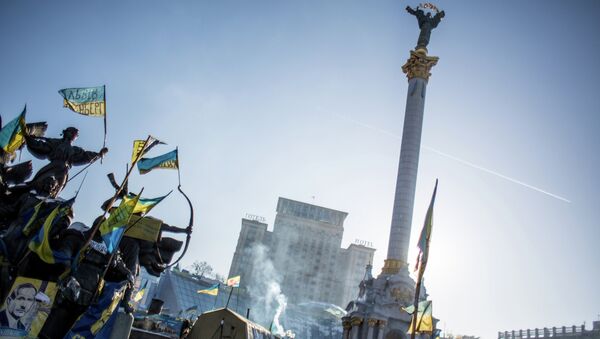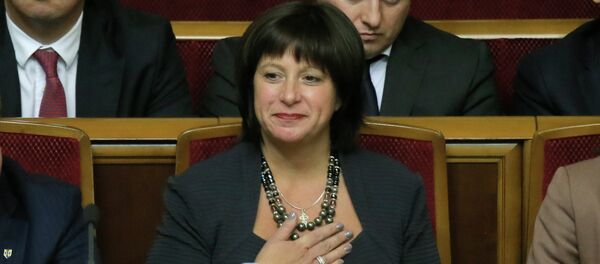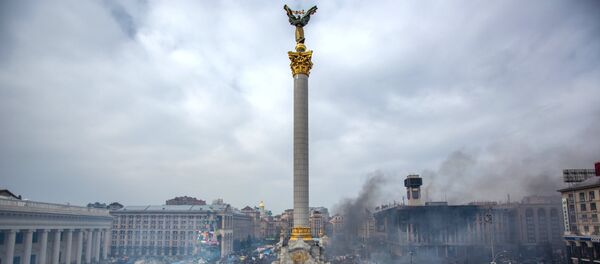The article, entitled "Ukraine Gets Billions, and Delivers Nothing," argues that while "Ukraine asks for more money from the West, and gets it, in return Kiev refuses to carry out reforms, and has already announced that the debts are unlikely to be settled."
Steiner cites Ukrainian Finance Minister Natalie Jaresko, who recently told Wall Street Journal that she is still "looking for more support" after receiving $40 billion in loan and aid guarantees from the IMF and individual donor countries. Jaresko noted that while the existing assistance "is going to stabilize the financial banking system…it's not enough to seriously restart and promote growth."
"In fact Jaresko is only at the starting point of her negotiations with creditors," Steiner notes. He adds that based on the American-born investment banker's record, "it is clear that lenders should not expect to see their money repaid in full. [Jaresko will argue] that the situation in the country is poor, and if negotiations turn out the way Kiev desires, Ukraine will be able to 'save' about $15 billion in non-repayment."
Kiev's Abysmal Record Over Past 25 Years Leaves Little to Be Desired
Citing Ukraine's poor record of reforms over the last 25 years, Steiner notes that even the Orange Revolution of 2004, "which gave rise to hopes that there would be a fundamental transformation in the country along Western lines," ultimately did not lead to any positive changes, with the oligarchic political and economic system remaining firmly in place. "In the end," Steiner notes, "Ukraine froze over with the self-destruction of the Orange revolutionaries," making it possible for Viktor Yanukovych to return, and to turn the country into a "simple kleptocracy, with Yanukovych himself playing the top oligarch."
Steiner notes that "the conclusion is sobering: Ten years after its new beginning, no systemic changes have taken place. The oligarchy has not been eliminated, but has risen to new heights, with Igor Kolomoyski, one of the richest men in Ukraine, even becoming a governor, and coming to politically control at least two regions."
Steiner notes that officials and oligarchs remain closely intertwined, lawlessness and official arbitrariness are rampant, and corporate raider activity is tolerated by authorities. He cites Belarusian economist and Ukraine expert Yaroslav Romanchuk, who notes that the old clan chiefs have entered into a political alliance with the new leadership, adding that "the declared zero tolerance for corruption has been met with zero activity in its real eradication."




